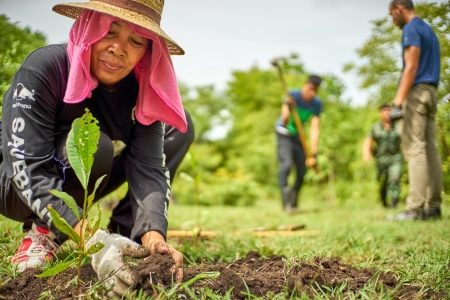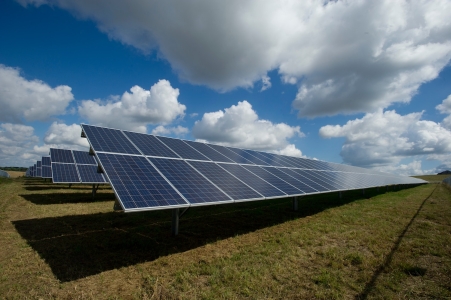8 Sustainable Changes to Make in Your Everyday Life
The term “everyday activism” refers to using our own personal life to create change. This includes incorporating activism in our everyday activities such as what mode of transportation we take, the food we eat, and the clothes we buy. Likewise, recognizing how our own behaviors are a direct representation of our values, beliefs, ethics, and worldview are all aspects of everyday activism. We have a social responsibility that involves engaging in various social issue efforts. We should be working with individuals and organizations in society that will benefit the community and society.
Tip One: Be Aware of Your Consumption
- One of the easiest ways to reduce your environmental impact is to simply consume less. Likewise, be aware of the types of products you’re consuming. You should consider reducing the amount of meat you eat, investing in reusable grocery bags, and shopping at local organic food markets. It’s always a good idea to keep a few reusable bags in your vehicle or purchase ones that you can clip onto your backpack and purse.
Tip Two: Reuse and Recycle
- Recycling and reusing everyday items can help reduce the amount of waste that ends up in landfills. You can invest in reusable containers, purchase products with recyclable packaging, and repurpose your old items. Next time you clean out your closet, try recycling it for sustainable businesses such as ThredUp, FreeCycle, and Retold Recycling which offers a monetary reward. Likewise, you can purchase clothing from these websites and provide them with a second life.
Tip Three: Compost Waste
- Composting your food waste can help reduce waste and fight climate change. Starting your own compost bin in your backyard, school, or workplace is easy. The basis of composting is “the greens and browns”. Your “greens” include food scraps, like strawberry tops, potato peelings, coffee grounds, and even grass clippings. Your “browns” are carbon-rich items such as egg cartons, pine needles, and newspapers. It is best to avoid cooked food, bones, and oily foods because they can attract pests. Once your compost mix is created, remember to turn, or rotate the pile to keep the process moving.


Tip Four: Support Sustainable Businesses
- Look for businesses that prioritize sustainability in their practices. There are plenty of online and in-person stores that sell eco-friendly products. For clothing, you can shop at Patagonia, MUD Jeans, and Cariuma Shoes. For household items, check out Seventh Generation cleaning products, Dr. Bronner’s organic soaps, and Avocado Green Mattress. Some of these items are priced higher than usual, however, they’re contributing to creating a more sustainable environment and are better quality than unsustainable businesses.
Tip Five: Use Sustainable Transportation
- Cars are one of the leading contributors to greenhouse gas emissions. If available in your area, consider using public transportation to decrease the number of vehicles on the road. You can also try biking, walking, or carpooling. If you’re unable to partake in alternative transportation methods, remember to combine errands into one trip and shop by phone, mail, or internet when able to.
Tip Six: Reduce Energy Consumption
- There are numerous ways to reduce your energy consumption in your everyday life. When you leave your house, you should turn off all lights and consider harnessing natural light by opening windows or switching to energy-efficient light bulbs. Likewise, you should unplug all your appliances and electronics when not in use. Other simple changes are setting thermostats at optimal temperature, utilizing green energy options provided by utility companies, and considering supporting renewable energy initiatives.



Tip Seven: Keep Plants Inside or Outside your Home
- Plants are a great way to help clean and purify the air in your home. If you have a black thumb, consider purchasing plants that are easy to care for and don’t require a lot of watering. Likewise, having an outdoor space with plants and bushes can help offset your carbon footprint. Gardens provide a local source of fresh produce and using compost in your garden will help it thrive.
Tip Eight: Educate Yourself and Speak Up
- There’s always more you can learn about sustainability. If you stay informed about environmental policies, politicians who prioritize sustainability, and companies that are eco-friendly you’ll not only be able to educate yourself but others as well. It’s important to use your voice to advocate for sustainability. You can consider contacting local politicians, starting conversations with friends, and utilizing social media to help others learn how they can reduce their environmental impact.
Each of these changes involves individual behaviors that are part of larger social systems. It’s important to recognize that change begins on a small scale. However, if we collectively decide to make these lifelong commitments, we can create larger change in the world. Remember to do research, make choices, change behaviors, and influence others. We must create change to keep our environment sustainable for future generations.
Maddie is a student at Temple University located in Philadelphia where she is pursuing a double major in Communication and Social Influence, as well as Journalism.
With the use of her communication and writing skills, she aims to advocate for important social issues, amplify marginalized voices, and spark meaningful dialogue.
Visit: Website | Instagram | LinkedIn
Join the movement towards a greener future!
Use #WorldEnvironmentDay on your social media and raise awareness about the importance of protecting our planet.
